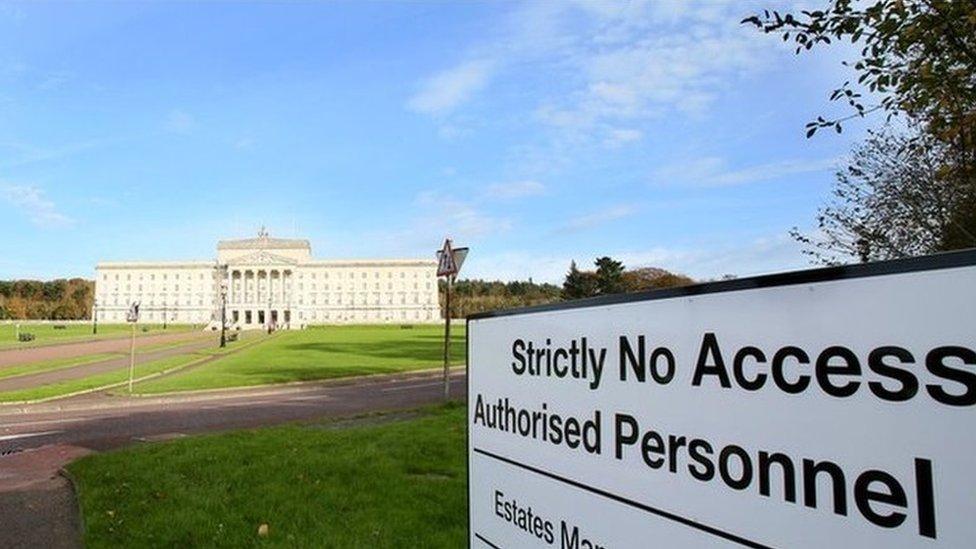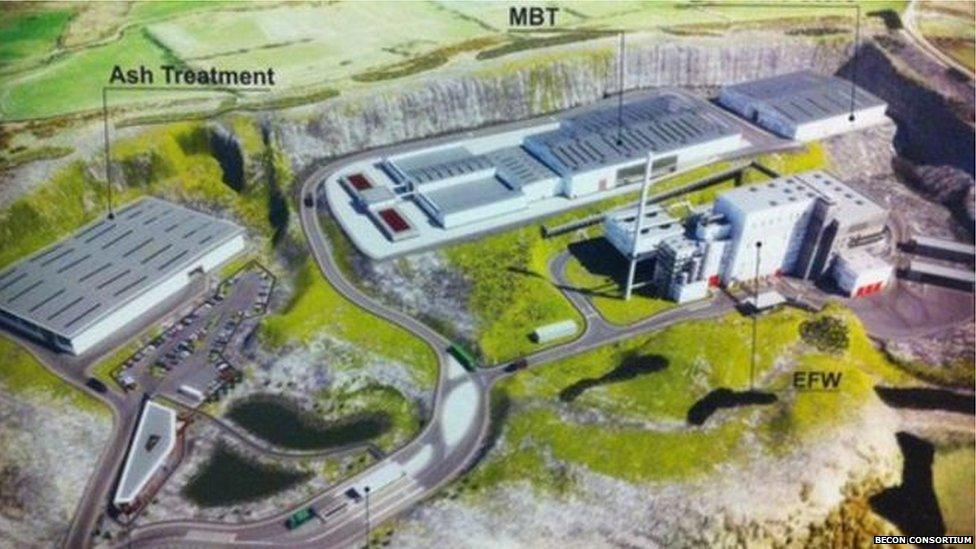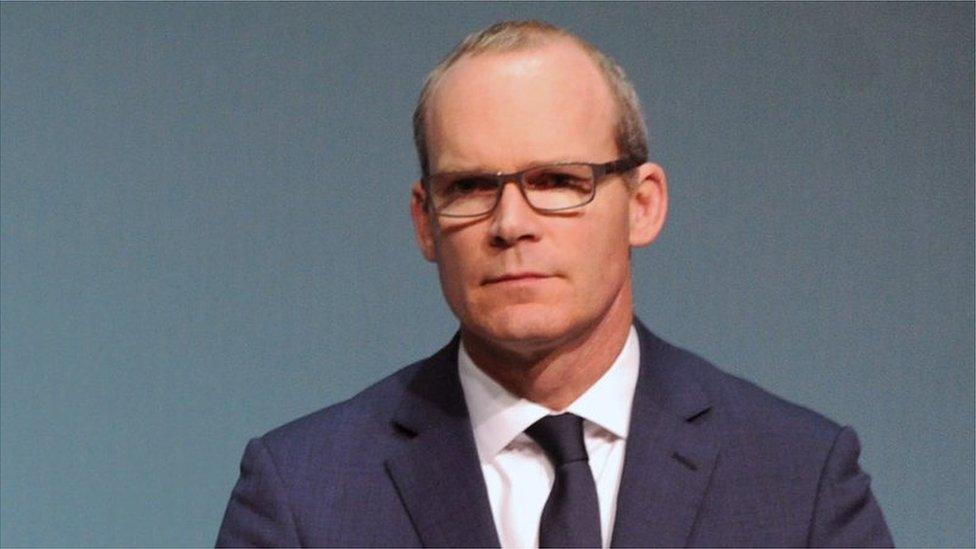'Limited' time for civil servant rule in Northern Ireland
- Published

Northern Ireland has had no government since January 2017
After announcing to MPs her proposals for coping with the Stormont deadlock, Karen Bradley now has to try to secure a measure of agreement, or at least acquiescence, from the local parties.
Mrs Bradley's frank admission of ignorance about the basic facts of Northern Irish politics, made in an interview with the House magazine, led to some ridicule over the weekend.
Mrs Bradley didn't make any reference to this in a speech to the British Irish Association - a gathering of academics politicians and other interested observers - in Oxford.
Instead she simply repeated that restoring Stormont remains the Government's "absolute priority".
'A sticking plaster, rather than a longer term solution'
With that in mind the Northern Ireland Office (NIO) plans to carve out a "limited and prescribed period", probably around six months, in which it will take the prospect of an Assembly election off the table and - in parallel - provide Stormont civil servants with more flexibility to administer the system.
Informed sources say the intention of the government is not to give the civil servants greatly enhanced powers, turning them into ministers without any democratic mandate.

An artist's impression of the proposed oncinerator in Mallusk, County Antrim
Instead the plan is to return the situation to how it stood before the court judgement which blocked the Arc 21 incinerator in County Antrim back in May.
That severely limited the officials room for manoeuvre across the board.
Before the incinerator judgement the civil servants were making decisions they determined were unavoidable, necessary and in the public interest.
The plan is to enable them to do that once more.
Karen Bradley told BBC Radio Ulster's Evening Extra that she wants to reach agreement with the local parties on how this temporary government by the mandarins might work.
This could be difficult. Unionists, for example, may be comfortable with the civil servants being accountable to the Secretary of State, yet republicans would regard that as looking too much like Direct Rule.

The meeting of the British Irish Association took place at Pembroke College, Oxford.
Some MLAs might be enthusiastic about creating committees at Stormont to scrutinise the bureaucrats.
But others may conclude that is just another way of dressing up previously rejected proposals for a Shadow Assembly.
Some politicians may prefer not to endorse any package the NIO puts together, because that would limit their own options.
As things stand, they have the luxury of denouncing the logjam whilst at the same time loudly proclaiming their opposition to projects like the waste incinerator or a planned north south electricity interconnector.
So it could be that our temporary government by officials does not have quite the clarity the government is promising, but retains a degree of ambiguity.
It is, after all, a sticking plaster, rather than a longer term solution.

Simon Coveney previously said calls for border polls during ongoing Brexit negotiations are 'unhelpful'.
The British Irish Association operates under Chatham House rules - meaning that some of the most interesting exchanges that take place there are off the record.
But like Karen Bradley, the Irish Foreign Minister Simon Coveney published the text of his speech.
Mr Coveney didn't address the NIO's latest initiative directly, instead dwelling more on the challenges posed by Brexit.
But the Tánaiste did urge Stormont politicians not to devote all their efforts into being persuaders for or against constitutional change.
Instead he wants them to "help make Northern Ireland work, help make it a great place to live in, and work in, and raise a family in - whatever that family may look like - we come in all shapes and sizes these days".
Mr Coveney also urged the parties to work the institutions of the Good Friday Agreement "to the full in a spirit of generosity and mutual respect."
The problem is that Brexit, the RHI inquiry and the possibility of a by election in North Antrim amongst other developments provide plenty of potential for our politicians to engage in competing rhetoric and pursuit of short term advantage.
Does anyone believe we will be in a better place whenever the NIO created hiatus comes to a close?